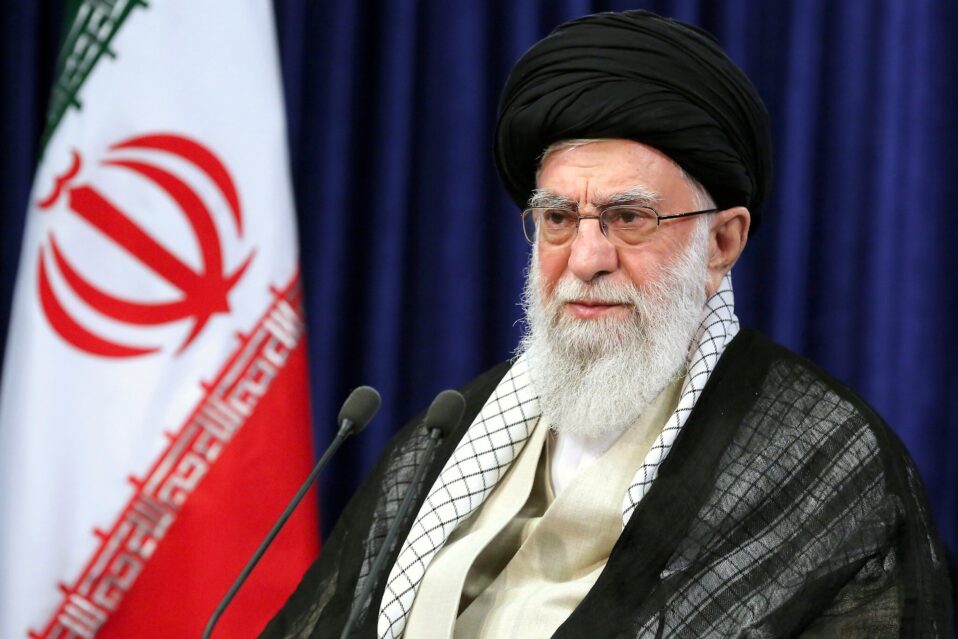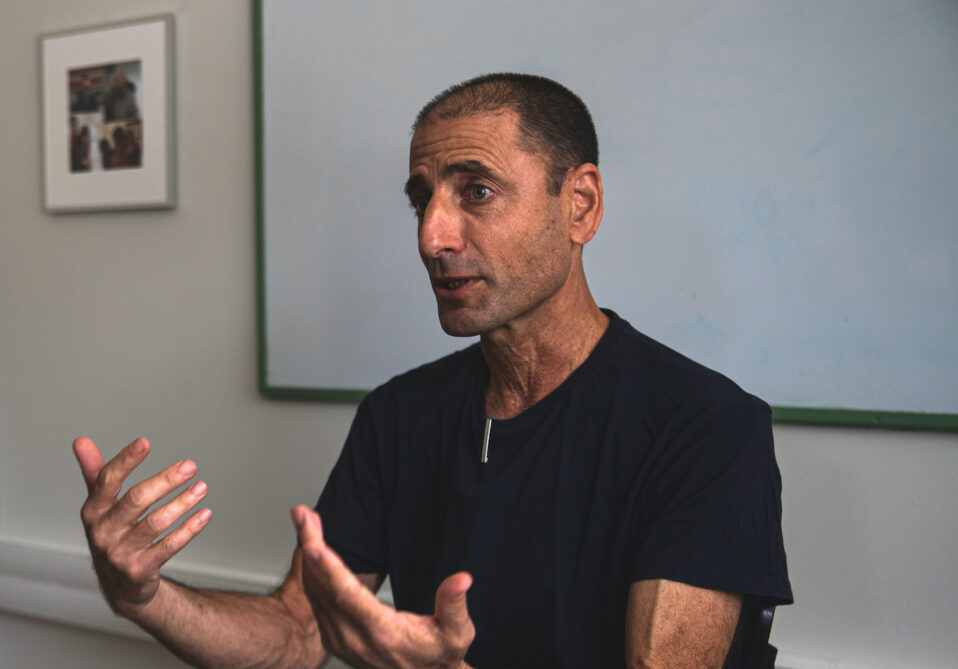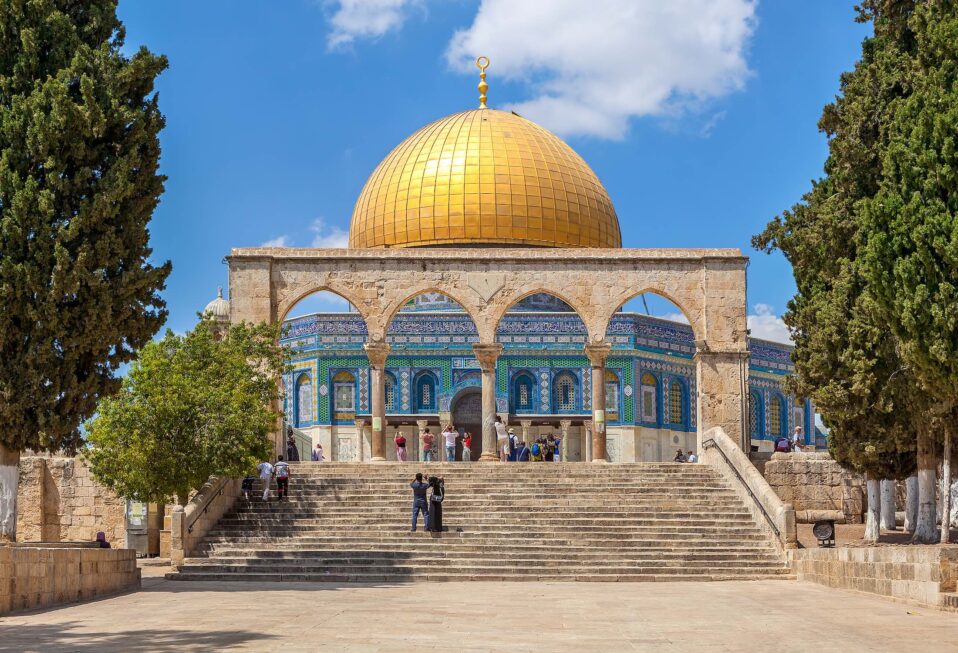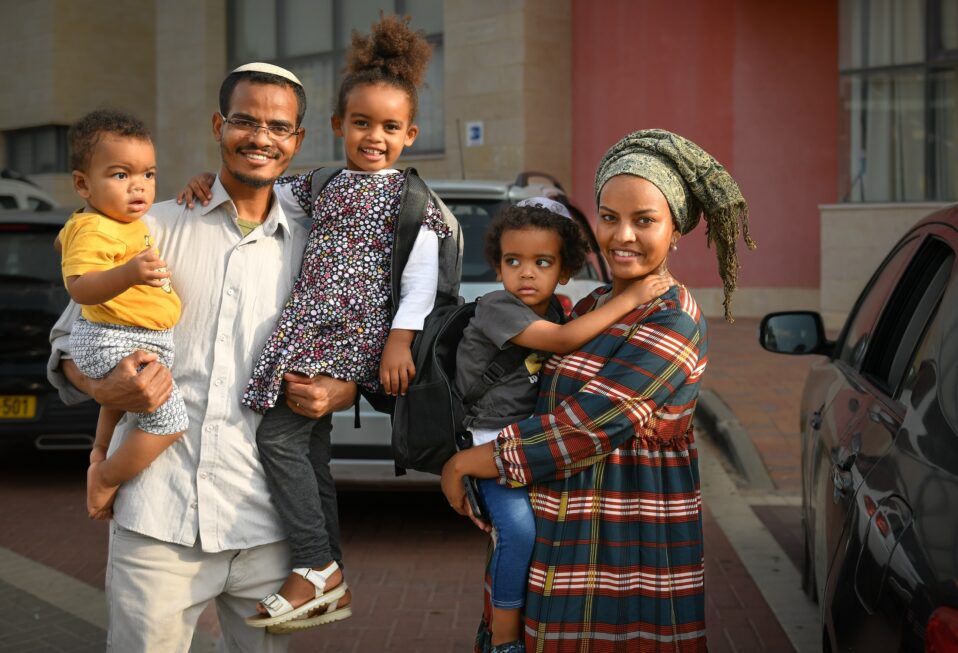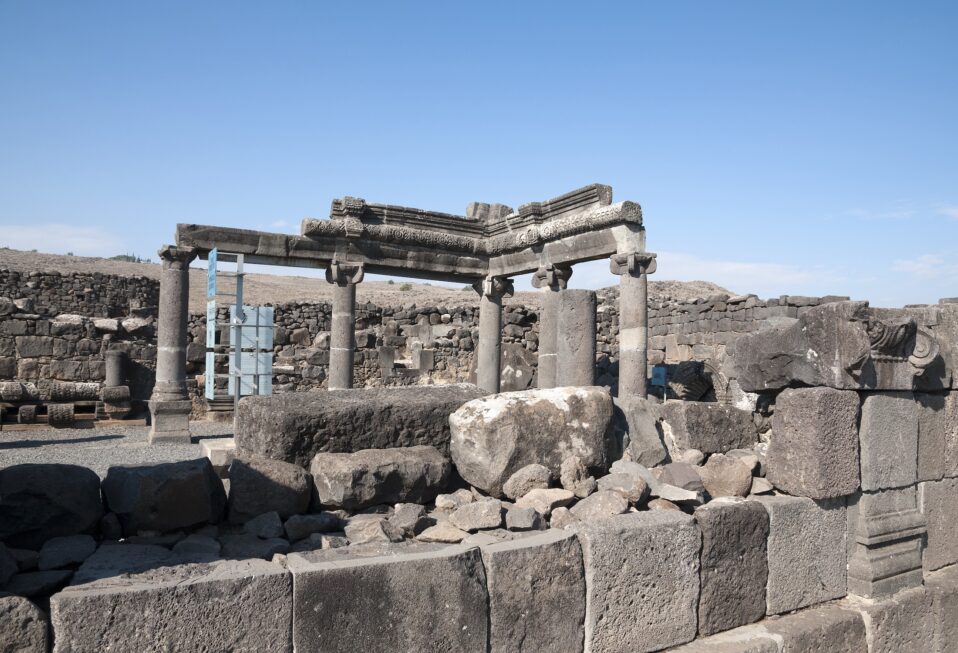By Arlene Bridges Samuels
Most Americans are unaware that the nation of Iran has the United States in its crosshairs. They’re oblivious to the chilling truth that this trigger-happy Middle Eastern country considers us the “Great Satan” and wishes us harm.
Israel, however, is all too aware of this ongoing threat. They are forced to be hyper-vigilant, based on an exceptionally unpleasant history with Iran. In the 41 years since the 1979 Iranian Revolution, Iran’s Imams have threatened Israel—and the United States—with a long series of Shiite Muslim intimidations. The Imams view their role as clearing a path for Iran to rule the world once again, in a modern version of the ancient Persian Empire—which centuries ago encompassed the areas of modern-day Iran, Turkey, Egypt, and parts of Afghanistan and Pakistan. At its height, it ruled 44 percent of the world’s population—more than any other empire in history. Beginning in about 550 B.C., the ancient Persians conquered three continents with swords, horses, and chariots. Today, the ruling Imams and their Iranian Revolutionary Guard Corps (IRGC) want to revive Persian dominance with a religious Islamist caliphate (governance)—and include the menace of an Iranian nuke.
American administrations, whether Democratic or Republican, must remain alert to Iran since we don’t have to guess at Iran’s intentions. Supreme Leader Ayatollah Ali Khamenei always uses the annual Quds Day (Quds is Arabic for “Jerusalem”) at the end of Ramadan to defame Israel, Zionism, and the U.S. while stridently proclaiming his support for Palestinians. Here is part of Khamenei’s May 2020 speech.
“The virus of Zionism won’t last long and will be eliminated. It’s the worst human evil, it will be uprooted from the Middle East despite being supported by the United States … in the not-too-distant future.” Khamenei went on to say, “The cancerous tumor continuing this historical oppression for decades uses the most horrifying forms of murder, crime, destruction of farmlands, and genocide—this is indeed a new record in brutality and wickedness. The main agents and criminals behind this tragedy are the western governments and their satanic policies.” Khamenei and his Imams often refer to the U.S. as the “Big Satan” or “Great Satan” and Israel as the “Little Satan.”
Iran’s continuing quest for nuclear weapons has, in part, motivated some of the Arabian Gulf states to forge alliances with Israel in the Abraham Accords—which is a bulwark against Iran’s leaders who have not relented in their goals of dominance in that region and the world.
Deemed the world’s most prolific terror-sponsoring nation, Iran supplies two of its terror proxies—Hamas in Gaza and Hezbollah in Lebanon—with money and weapons. For the last nine years, during Syria’s horrific civil war, Iran’s long alliance with Syria expanded. The IRGC’s elite Quds Force, manned by several thousand soldiers and supplied by weapons depots, has been stationed just miles away from Israel’s border. The IRGC has suffered losses due to Israel’s Air Force efforts to contain the Iran threat in Syria. Iran’s threats cannot come true and as Prime Minister Netanyahu has repeatedly stated, “We will not allow Iran to achieve nuclear weaponry. We will continue to fight those who would kill us.” Israel’s uncompromising resolve was evident when it destroyed Iraq’s Osirak nuclear reactor in a 1981 clandestine air attack and again in 2007, when Israel discovered Syria’s nascent nuclear program.
Iran has not confined its bellicose meddling to the Middle East. For decades they have allied themselves with North Korea with their mutual interest in developing nuclear weapons. They have pointedly increased their influence in Latin America, building Iranian embassies, numerous cultural centers, and mosques in such nations as Argentina, Brazil, Cuba, Mexico, Ecuador, Nicaragua, and Venezuela. The IRGC has troops based in Venezuela to help that nation prop up its destructive dictator, Maduro, while the Venezuelan national airline ferries weapons, gold, and people between the two countries weekly.
In 2015, in response to Iran’s decades-long history of destructive influence and actions worldwide, the United States, Britain, France, China, and Russia plus Germany—known as the P5+1—finalized the Joint Comprehensive Plan of Action (JCPOA) with Iran. The Obama administration attempted a deal that would contain or prevent Iran’s nuclear quest. Based on faulty principles giving Iran too much too soon without first locking in active, proven concessions, it resulted in an Iran that enjoyed premature offers and compromises and then found ways to continue their smiling, clever chess game—of hidden centrifuges, nuclear missile development, and terror—while still supplying its surrogates in the Middle East: Hamas, Hezbollah, and Syria.
The Obama administration and P5+1 mistakenly overlooked Iran’s bullying nature and treated it like a democracy rather than an apocalyptic Islamic regime intent on dominating the world. It resulted in the flawed Iran deal still reverberating today on the world’s stage. Their underground nuclear facilities are scattered throughout the country. Iran’s nuclear goals include adding more centrifuges that spin at 1,500 revolutions per second to enrich uranium. And with its missile systems, with effective ranges between 700 to 1,500 miles, possibilities exist that Iran—by transforming missiles into nuclear-tipped warheads—could threaten not only Israel and the Persian Gulf states, but also Europe. The leaders of France, Germany and the U.K., expressing their concerns to the United Nations Security Council, believe Iran has already achieved nuclear-capable missiles. And it’s not far-fetched to think that Iran could take aim at the U.S. East Coast using a nuclear-tipped missile loaded onto a ship setting sail for the Atlantic Ocean.
Another ignored issue in the Iran negotiations was Iran’s theocracy and its deep allegiance to their Shiite religion and its largest branch, Twelver Shiism. According to their beliefs, the 12th Imam—or Mahdi, “the awaited one”—is considered an Islamic savior. Shia Muslims believe the Imam Mahdi has been alive since 869 A.D. but remains hidden until a chaotic time on earth when he will appear and rescue mankind.
In William Wagner’s book, How Islam Plans to Change the World, the author and Christian professor observes that “a critical part of Islam is taking control in the world and thus ushering in the Mahdi. They think one of the major blocking points is Israel, and that is one reason why they feel like they must destroy Israel.” Wagner states that Islam wants the entire world to become Muslims.
Israeli geopolitical analyst Jonathan Spyer observes, “Iran will do all in their power to preserve the regime by all means. Why? Three main reasons: the Mahdi and the necessary upheaval, the Mahdi and Iran as a facilitator for his reappearance, and the Mahdi and Tehran’s visceral hatred of Israel.”
The P5+1’s lack of understanding about the role of apocalyptic Islamism, along with their demonstrated naivete, led them to think that Iran, the world’s most prolific purveyor of terror, would magically morph into an honest partner and abandon its nuclear goals and threats.
When it comes to American policy toward Israel under differing administrations, history is the best proof by looking at the two most recent Presidents: Obama, then Trump.
Obama supported Israel’s annual security aid during his two terms. His relationship with Netanyahu, though, was riven with policy disagreements. Several of Obama’s decisions left many Israelis with deep distrust.
First and foremost, Obama’s push for the Iran deal created damaging divisions between Israel and the United States. Israelis and pro-Israel American evangelicals knew the deal was ill-conceived and based on an anemic American strategy. Secondly, Obama viewed Palestinian leadership as victims instead of corrupt officials, a kleptocracy that did not invest in its population’s well-being. One of the final insults happened in December 2016, when the United States did not veto a U.N. resolution that condemned Israeli “settlements” in Israel’s biblical heartland—Judea and Samaria. Obama then finished off what Israelis perceived as a betrayal by releasing $221 million to the Palestinians on Trump’s inauguration day. Republicans had held it up due to Palestinian corruption, concerned that the money would remain only in the pockets of its leaders.
President Trump’s outstanding policies, on the other hand, have led both Israelis and pro-Israel Christians alike to compare him to Cyrus the Great, the benevolent military conqueror who freed the Jews from the Babylonian captivity in 538 B.C., enabling them to return to their capital, Jerusalem. In an analogous way, President Trump “freed” the U.S. Embassy located in Tel Aviv to move to Jerusalem, Israel’s ancestral capital, after 25 years of delay from Presidents Clinton, Bush, and Obama. Trump’s administration has also supported Israel’s annual security aid. Significantly, he kept his promise to pull out of the defective Iran deal and increase Iran sanctions. President Trump gave $5 million to Palestinians to help fight COVID-19, but he cut significant aid to the Palestinians in 2018 and 2019 due to their corrupt leadership, refusals to negotiate with Israel, and their payments to terrorist’s families.
Supporting Israel’s sovereignty over the Golan Heights and brokering the historic Abraham Accords have also won the hearts of Israelis and pro-Israel evangelicals. Israel even named a train stop near the Western Wall in honor of Trump and named a new Golan Heights community “Trump Village.” Had Israelis and their millions of Christian friends been in charge of bestowing the Nobel Peace Prize, President Trump would have been the deserving winner.
The controversial “settlements” were also recognized in a declaration signed by Secretary of State Mike Pompeo that “establishment of Israeli civilian settlements in the West Bank is not, per se, inconsistent with international law.” In another correction, Pompeo recently signed a long-awaited declaration allowing Israeli citizens born in Jerusalem to add “Israel” as their country of birth. It’s been clear in the last four years that Trump and Netanyahu have enjoyed a warm, collegial relationship.
At this writing, the Electoral College has not yet certified the winner of the 2020 presidential election. If Mr. Biden is officially designated as President-elect, we can expect a change in policies toward Iran and the Palestinians. Biden has said he will rejoin the JCPOA with Iran. This alone would be a source of alarm for Israelis. We could expect Biden to be much more sympathetic to Palestinian leadership, try to broker a deal between Palestinians and Israelis, and likely lean hard on Israel to make useless concessions with no cooperation from Palestinian leadership. Although Biden said he would not move the U.S. Embassy back to Tel Aviv, his policies would undo many of the blessings and security guarantees that President Trump has rightly given Israel.
Mr. Biden has known every Israeli Prime Minister, beginning with Golda Meir, and he and Prime Minister Netanyahu do have a long-term, cordial relationship. Biden is known to have joked to Netanyahu a few decades ago, “I don’t agree with a thing you say, but I love you.” In one of his 1980s speeches on the floor of the Senate, Biden declared, “If there weren’t an Israel, the United States of America would have to invent an Israel to protect our interests in the region.” In the 2020 Democrat election debates, he clearly said that he would not threaten Israel with reduced security aid.
Israelis, though, will not let up in their watchfulness toward Iran and or relax their well-founded policies to defend their homeland on three of their borders with Iran’s surrogates. We will likely hear more stories about Israel’s covert operations similar to Mossad’s 2018 stealthy raid on a Tehran warehouse in the dead of night. In a little over six hours, they confiscated a 100,000-document archive of Iran’s secret nuclear activities. Or another mysterious explosion like the one in 2020 at Natanz—a uranium enrichment site.
Join us in praying for the nation and people of Israel as they potentially face significant threats in the days ahead:
- Pray that the outstanding cooperation and partnership between the U.S. and Israel will continue in the years and decades ahead.
- Pray for success and protection for all branches of Israel’s military: ground forces, Air Force, Navy, submariners, police, Mossad, Shin Bet, and cybersecurity.
- Pray for protection and encouragement for the thousands of Iranians who are coming to faith in Jesus but fear for their safety and their families’ welfare.
- Pray that Iran’s Imams and IRGC will be stopped in every effort to destroy the Jewish state and Jewish communities worldwide.
As we pray and advocate for Israel, may we continue to trust that “He who watches over Israel will neither slumber nor sleep” (Psalm 121:4).
Arlene Bridges Samuels pioneered Christian outreach for the American Israel Public Affairs Committee (AIPAC). After she served nine years on AIPAC’s staff, International Christian Embassy Jerusalem USA engaged her as Outreach Director part-time for their project, American Christian Leaders for Israel. Arlene is now an author at The Blogs-Times of Israel and has traveled to Israel 25 times. By invitation, she has attended Israel’s Government Press Office Christian Media Summit three times. She hosts her devotionals, The Eclectic Evangelical, on her website at ArleneBridgesSamuels.com.




